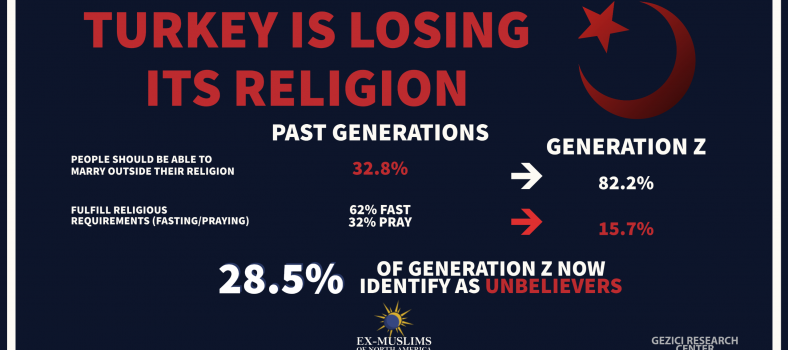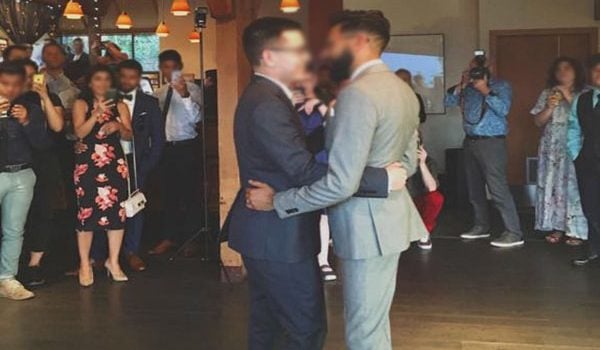By Any Means Necessary? Is Islam a means to human rights?
When I was in elementary school, I participated in a play put on by my local mosque about the life of Malcolm X as part of our annual Eid celebrations. The audience, full of believers from around the Muslim world, watched on as my peers and I reenacted the life of America’s most influential black Muslim convert and civil rights leader.
We kids, the children of immigrants and the children of converts, served as a good representation of the diversity of our Muslim community. A handful of African American Muslim kids played the roles of Malcolm’s earliest Nation of Islam followers. Lighter skinned Arab kids with Syrian and Algerian backgrounds played the roles of the “white” Muslims who Malcolm so famously met on his pilgrimage to Makkah. Sudanese kids played the roles of Malcolm’s assassins. I played Malcolm.
In my oversized black suit and polyester tie, I peered over the podium and confidently broadcasted my barely-pubescent voice throughout the crowded auditorium, passionately repeating the racially charged, fiery speeches I had spent weeks memorizing. Leaning closer into the microphone for more effect, I remember my fervent pitch and rising intonation as I lamented 400 years of oppression and demanded civil rights for blacks “by any means necessary.”
Civil rights and Black Nationalism, however, were never the intended messages of the play. Indeed, it was understood that the racist overtones of Malcolm’s earlier speeches were to be despised and detested, as were the racist attitudes of the whites Malcolm sought to combat. After walking around a cardboard representation of the Kaa’bah and sharing a fake meal with my “white” Syrian fiend, the play culminated with me proclaiming a collection of Malcolm’s final works in which he announced that he was no longer a racist or a black supremacist, but was instead a true follower of Sunni Islam. His pilgrimage to Makkah had shown him that Islam’s teachings of human equality were the solution to America’s own racial troubles.
“America needs to understand Islam, because this is the one religion that erases from its society the race problem…. I have been blessed to visit the Holy City of Mecca. I have made my seven circuits around the Kaa’ba… There were tens of thousands of pilgrims, from all over the world. They were of all colors, from blue-eyed blonds to black-skinned Africans….I have never before seen sincere and true brotherhood practiced by all colors together, irrespective of their color…. If I can die having brought any light, having exposed any meaningful truth that will help to destroy the racist cancer that is malignant in the body of America, then all of the credit is due to Allah. Only the mistakes have been mine.”

In many ways, I interpreted our diverse Muslim community as a manifestation of Malcolm’s own vision: a community in which race did not matter and believers saw themselves as brothers in faith first, regardless of ethnicity.
Indeed, as I made my own seven circuits around the Kaa’bah on my first pilgrimage to Makkah many years later, I remember taking a moment to reflect on the diversity I saw around me and the vision of the man whose character I had portrayed as a young boy.
But this was only a romanticized interpretation. In reality, the teachings of Islam have incredibly troublesome implications for issues of race, gender, and inter-faith coexistence.
This is because Islam does not actually solve the racial problem; it replaces racial identity with an equally divisive religious identity. Once this new religious identity is adopted, the believer aligns himself with fellow believers, often at the expense of other communities and causes with which he may have been affiliated previously. As it relates, for example, to the experience of African American converts attracted to Islam through the civil rights movement, this trade means that all non-Muslim blacks, once seen as partners in a common struggle, are now seen as reprehensible “disbelievers.” In the Qur’an, even worse attitudes are propagated against disbelievers than were held by most racist whites against blacks.
“And the disbelievers are the (real) wrongdoers.” (Qur’an 2:254)
“And for the disbelievers there is a painful torment.” (Qur’an 58:5)
“Indeed, they who disbelieved among the People of the Scripture and the polytheists will be in the fire of Hell, abiding eternally therein. Those are the worst of creatures.” (Qur’an 98:6)
(Disbelievers) are like livestock! Nay, they are even more astray! (7:179)
And there are many, many more examples.
It’s hard to imagine how any meaningful struggle for human rights could be hijacked and morphed into such polarizing views. The same bigotry is retained, reciprocated and instead directed towards a different demographic. A black disbeliever becomes just as bad as any other disbeliever and any progress made towards real advancement is lost.
To illustrate, suppose a doctrine existed in which the word “disbelievers” were supplanted with the word “negroes” in all of the above verses. The bigotry would be evident and it would be hard to imagine how any sense of harmony could be forged from such rhetoric.
“And the (Negroes) are the (real) wrongdoers.”
“And for the (Negroes) there is a painful torment.”
“Indeed, the (the Negroes) among the People of the Scripture and the polytheists will be in the fire of Hell, abiding eternally therein. Those are the worst of creatures.”
(Negroes) are like livestock! Nay, they are even more astray!
Ironically, this new religious identity necessarily borrows heavily from another racial identity, Arab identity, so much so that wherever one travels in the Muslim world (and indeed, even in Muslim communities in the non-Muslim world) one will find influences of Arabian culture and language that assert themselves both within the requirements of the faith and without. To be a Muslim is to adopt aspects of being an Arab, while to be an Arab is to have those aspects naturally. It creates a superior-inferior relationship amongst Arab and Non-Arab Muslims, with Arabs having the clear advantage. Arabic speakers, by right of God himself using their language to communicate with humanity, will always play an integral role in the Islamic experience in ways that other Muslims can not.
Running parallel to the fight for racial equality is the fight for gender equality. Amongst many Muslim apologists, the narrative is that Islam champions women’s rights and promotes a sense of reverence and female dignity far removed from the sexism and objectification of the west. From my perspective, though, the views propagated by Islamic sources regarding women are just as troubling as views propagated about disbelievers and would be unacceptable if applied towards any other demographic.
Consider again our earlier exercise. Take verses of the Qur’an that discuss the relationship between men and women and replace the words “men” and “women” with the words “whites” and “negroes.” A disturbing picture begins to emerge even if you hadn’t noticed it already.
(Whites) are in charge of (Negroes) by [right of] what Allah has given one over the other and what they spend [for maintenance] from their wealth. So righteous (Negroes) are devoutly obedient, guarding in [the white man’s] absence what Allah would have them guard. But those (Negroes) from whom you fear arrogance – [first] advise them; [then if they persist], forsake them in bed; and [finally], strike them. But if they obey you [once more], seek no means against them. Indeed, Allah is ever Exalted and Grand. (Modified from Qur’an 4:34)
And bring to witness two witnesses from among your (white) folk. And if there are not two (whites) available, then a (white) and two (Negroes) from those whom you accept as witnesses – so that if one of the (Negroes) errs, then the other can remind (him). (Modified from Qur’an 2:282)
For the (white) shall be the portion of two (Negroes) (Modified from Qur’an 4:11)
And so on. When put into the context of race—an issue in which the world has made great advancements—the Qur’an’s teachings about women seem like they emanated from the pages of Apartheid South Africa or the plantation days of the American south. How can we as people make justifications when half of humanity is spoken about in these terms?
Rather than liberating us from past injustices, the teachings of Islam only shift and perpetuate many of the human rights challenges we have sought to overcome as a society. By splitting us into camps of believers and disbelievers, Sunnis and Shias, salafists and modernists, or superior men and inferior women, Islam creates new divisions for inequality, discrimination, and hostility to fester within. If the ideal of human rights is our ultimate goal, then we can not adopt a means that opposes the rights of one group or favors another, be those groups based on race, gender, or religion.




